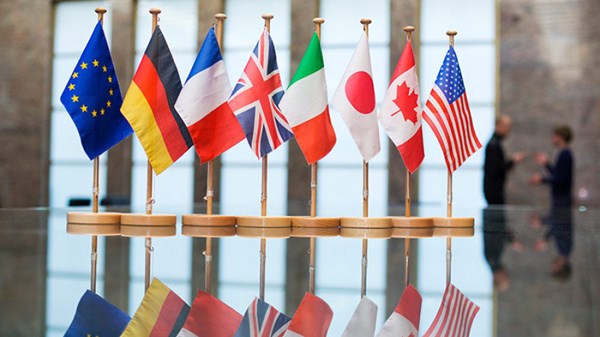G7 and World Bank urge Ukraine to reinstate illicit enrichment article of Criminal Code
The Group of Seven and the World Bank have criticized the Constitutional Court of Ukraine’s decision to revoke article 368-2 of the Criminal Code, which deals with illicit enrichment.
“The recent elimination of the illicit enrichment offence from the criminal code is a serious setback in the fight against corruption in Ukraine. This has weakened the impact of the whole anti-corruption architecture, including the soon to be established High-Anti-Corruption Court, which was expected to rule on a significant number of illicit enrichment cases, and the ability of the National Anti-corruption Bureau of Ukraine to investigate high-level corruption. The ongoing investigations and prosecutions for illicit enrichment held the promise of bringing accountability for those that had used their official position for personal gain,” the G7 and the World Bank said in a joint statement.
The statement points out that illicit enrichment is not a new offense. In 2010, more than 40 countries had criminalized it, and since then many more jurisdictions have included it in their criminal law.
“The G7 and the World Bank call on Ukrainian authorities to step up efforts for safeguarding the effectiveness of anti-corruption legal tools and institutions, including by reinstating criminal liability for illicit enrichment in line with UN, OECD and ECHR principles and finding a way to continue the dozens of investigations and prosecutions threatened by this ruling,” the joint statement concludes.
The Constitutional Court of Ukraine ruled to revoke the article on illicit enrichment due to its improper formulation.
Article 368-2 defined illicit enrichment as “the acquisition by a person authorized to carry out functions of state or local self-governance of a significant quantity of assets, where the legitimacy of the acquisition is not confirmed by evidence, as well as the transfer of such assets to any other person”.
The court ruled that the wording is inconsistent with the constitutional principle of the presumption of innocence (parts 1-3 art. 62) and the constitutional provision on the inadmissibility of prosecuting a person for refusing to give evidence or explanations with respect to themselves, their family members or close relatives (part 1 art. 63).
Ukrainian President Petro Poroshenko has subsequently drafted a bill with different wording, defining illicit enrichment as “the acquisition by a person authorized to carry out the functions of state or local self-governance of a significant quantity of assets, without the legitimate basis for this, and without evidence of abuse of authority or official position, or the acceptance of offers, promises or receipt of undue advantage by an official, or any other transfer of such assets to them”.
